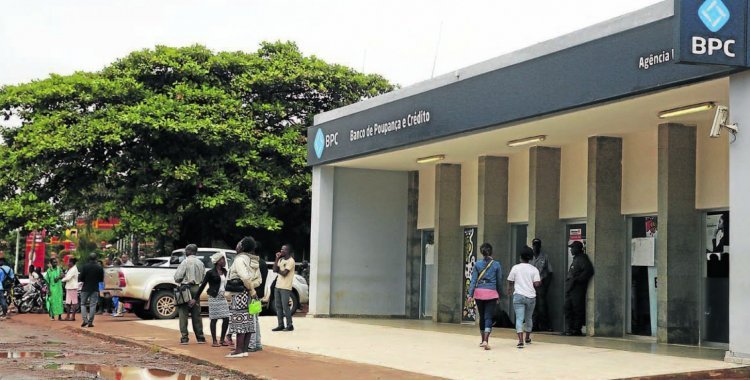The announcement was made this Friday by the governor of the National Bank of Angola (BNA), José de Lima Massano, promising that the payment of pensions "will be deconcentrated" through the National Institute of Social Security (INSS) which has become a member of the Angolan Payment System.
"And for this reason, it will be possible (the INSS), as soon as it has the operational conditions for this purpose, to make this arrangement and, depending on the requests of the pensioners, they will receive what is due to them at the bank of their choice," he said.
"And we removed this pressure that had already come from the past and that is worsening with the BPC restructuring program," he pointed out.
The governor of BNA responded this Friday in parliament to the concerns of the deputies during the discussion and vote on the proposed Law on the Regime of Activities of Financial Institutions.
The banking institution registers floods almost daily in the interior and at the entrance of the counters, spread throughout the country, where pensioners run in search of their income.
For José de Lima Massano, "it makes no sense to have pensions paid at a single bank".
"Therefore, pensioners must have the right to choose the banks where they want to receive their pensions," he said.
The Savings and Credit Bank, now headed by André Lopes, is in the process of restructuring. It recently closed several branches, especially in Luanda, and fired several employees.
In relation to the closure of branches and the dismissal of employees, Massano told deputies that for the entire restructuring process of BPC there are specific teams created to deal with the issue.
BPC has a huge bad credit portfolio and has been recapitalised by the state.
According to the governor of the central bank, irregular credit in the country is a concern, noting that at the moment about 21 percent of credit granted to the economy is in an irregular situation.
"And it is 21 percent because a significant part of this credit has been transferred to Recredit [an entity created to recover credits]. There is a lot of credit that unfortunately has not been paid out so far, has not been regularized and of course this later causes difficulty in granting more credit to the economy," lamented Massano.
As for the assumptions of the Law on the Activities of Financial Institutions, approved this Friday with 153 votes in favor, none against and six abstentions, Massano assured that it "does not open space for concentration or collusion among banks.







